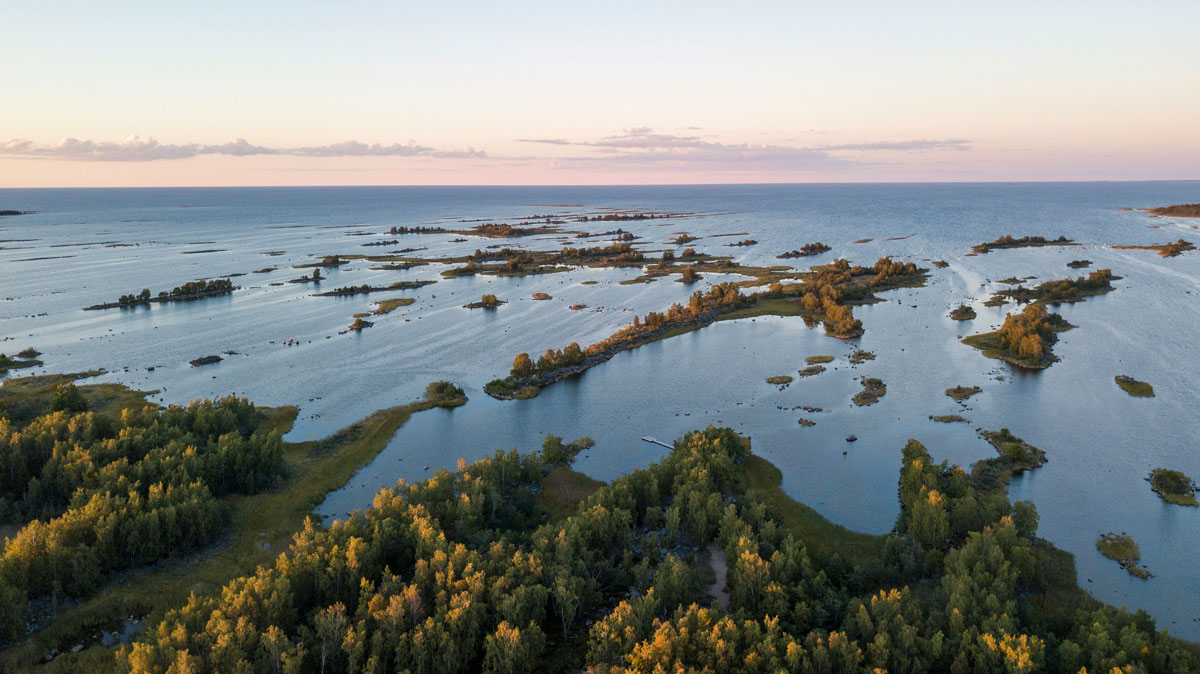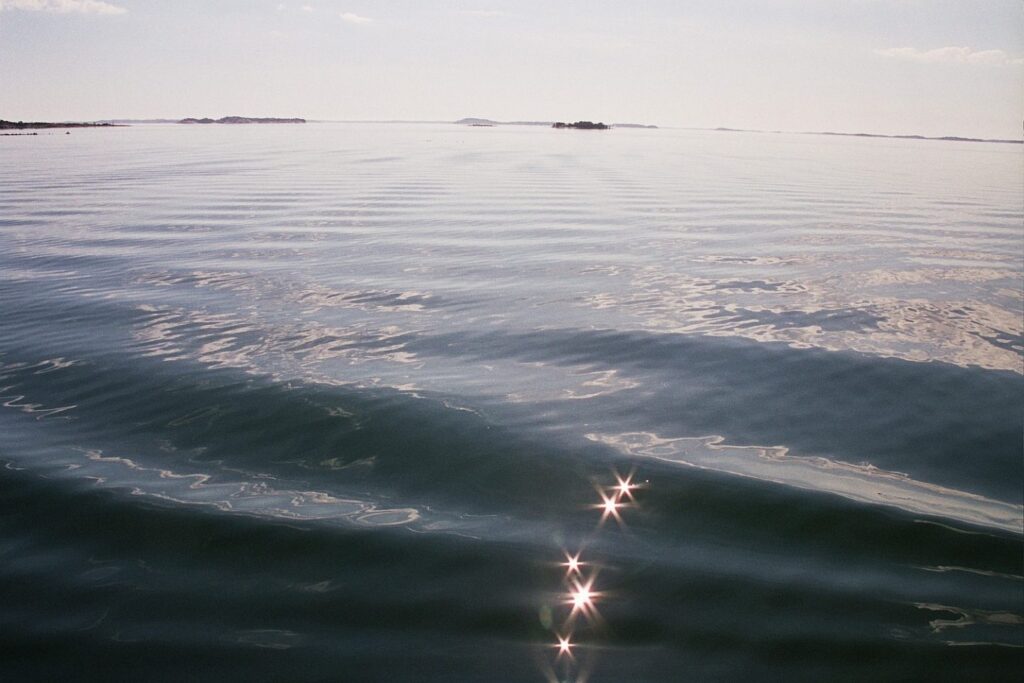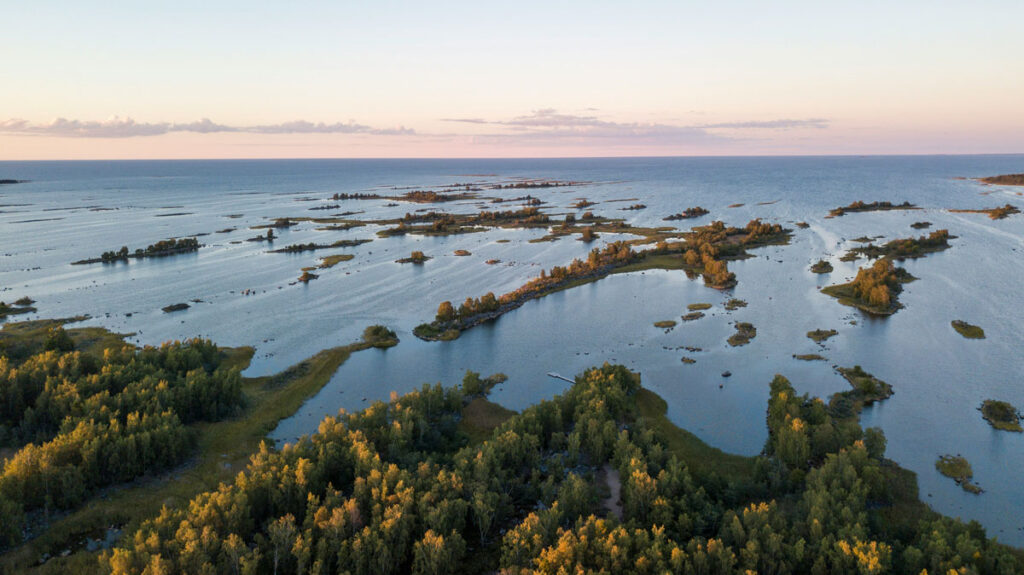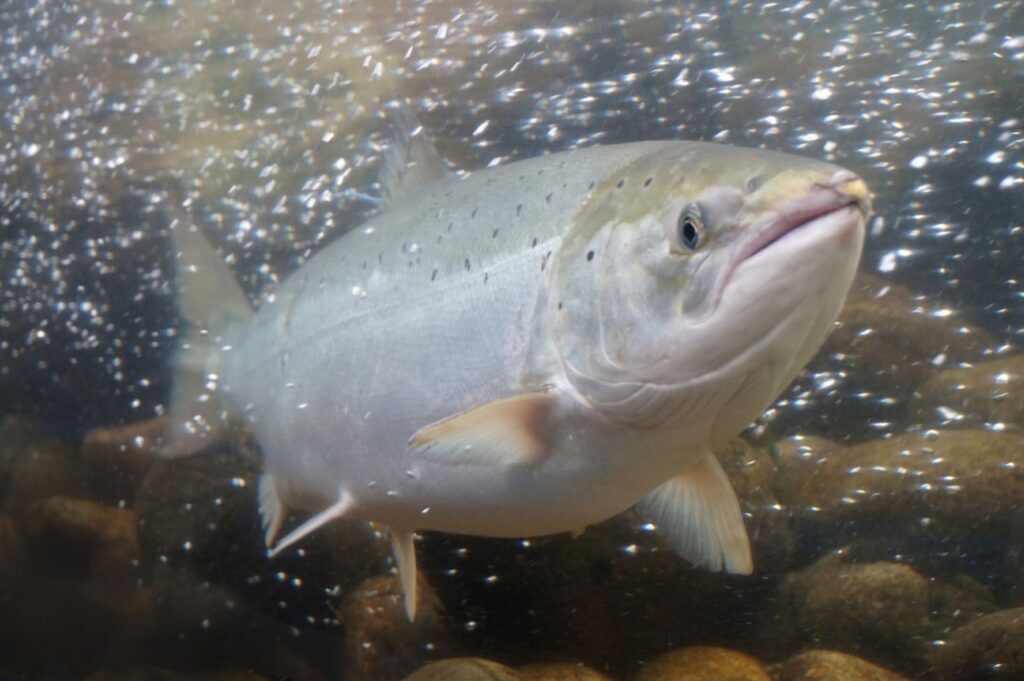Itämeri-järjestöjen kirje kalakantojen elvyttämisestä
Lausunto –

Open letter Our Baltic III
To:
European Commissioners of Fisheries and Environment
Ms. Jessika Roswall
Commissioner for Environment, Water Resilience and a Competitive Circular Economy Mr. Costas Kadis
Commissioner for Fisheries and Oceans
Subject:
Call to European Commissioners to Accelerate Fish Population Rebuilding in Connection with the Our Baltic III Conference on 30 September
Dear Madam/Sir,
We – environmental NGOs, fishing rights owners and anglers – welcome the European Commission’s initiative to convene a third ministerial conference, Our Baltic III. We support the commitments undertaken during the previous Our Baltic Conferences in 2020 and 2023. Nevertheless, further efforts are required to accelerate the protection and restoration of the marine environment and the recovery of fish populations, as we remain far from achieving agreed objectives. The Baltic Sea ecosystem continues to be in a critical state and urgent political action, ambitious commitments as well as a strong determination in their implementation are needed.
The decline of Baltic Sea fish populations is driven by multiple anthropogenic pressures, including nutrient and hazardous substance inputs, climate change, loss of essential fish habitats and intensive fishing. Most Baltic Sea marine protected areas lack effective management, making them ineffective for conservation.1 While all the listed factors require urgent action, we stress the need for stronger measures on fisheries.
1 Many of Europe’s protected areas lack specific conservation measures and objectives. EEA, 2020. Mapping of Marine Protected Areas and their associated fishing activities in the Atlantic, Baltic, North Sea and Outermost Regions. European Climate, Infrastructure and Environment Executive Agency. 2025.
11 September 2025
According to the 2024 ICES Ecosystem Overview2 and the HELCOM HOLAS 3 Report,3 fishing is one of the main pressures impacting the Baltic Sea ecosystem. Three of four herring populations are below target thresholds, with one outside safe biological limits. The Baltic sprat population is at record low, the cod populations have collapsed, and salmon populations are at risk due to low survival rates. Even the Baltic plaice shows signs of population distress.
At the Our Baltic III Conference, we urge you to consider the following measures:
- Ensure the advice request to ICES on fishing opportunities aims to rebuild populations above maximum sustainable yield (MSY) levels within clearly defined and ambitious timeframes, consistent with safeguards under the EU’s Baltic Sea Multiannual Plan (MAP) as well as the Good Environmental Status (GES) targets of the Maritime Strategy Framework Directive (MSFD).
- Implement a recovery plan for the Baltic Sea fish populations focusing on protecting essential fish habitats and spawning grounds, in particular for the Baltic cod and the three weak Baltic herring populations.
- Implement an ecosystem-based approach to fisheries management that effectively addresses the objectives of the Common Fisheries Policy (CFP). Fisheries management objectives should account for marine ecosystem functionality, including the integrity of food webs and ecological processes.
- Implement the 30/10 protection targets latest by 2030 and ensure that the network of protected areas in the Baltic Sea is effectively managed, as defined in the EU Biodiversity Strategy.4
- Commit to ambitious and effective time-bound restoration measures in the Baltic Sea, prioritising essential fish habitats.
- Commit to increasing efforts to eliminate bycatch, including unintentional catch of endangered and threatened species, such as for the critically endangered Baltic Proper harbour porpoise population.
- Ensure the implementation of the EU control regulation, with a special focus on stopping the widespread issues of misreporting in the Baltic pelagic fishery and the illegal discarding that occurs in the Baltic demersal trawl fisheries5.
Furthermore, stakeholders have been an integral part of the previous two Our Baltic conferences, with presentations and keynotes given by NGOs at both conferences. It is
2 ICES. 2024. Baltic Sea ecoregion – Ecosystem overview. In the Report of the ICES Advisory Committee, 2024. ICES Advice 2024, Section 7.1, https://doi.org/10.17895/ices.advice.27256635.
3 HELCOM 2023: State of the Baltic Sea. Third HELCOM holistic assessment 2016-2021. Baltic Sea Environment Proceedings n°194.
4 EU Biodiversity Strategy 2020. Nature Protection Key Commitments by 2030, p. 5.
5 ICES. 2025. Cod (Gadus morhua) in subdivisions 22-24, western Baltic stock (western Baltic Sea). In the Report of the ICES Advisory Committee, 2025. ICES Advice 2025, cod.27.22-24. https://doi.org/10.17895/ices.advice.27202560, Table 6 and Table 8.
therefore regrettable that the third conference excludes observers and civil society participation. We call on you to reconsider this decision, as restoring the Baltic Sea ecosystem demands inclusive collaboration from everyone.
We urge you to use this conference to decisively address the Baltic Sea’s challenges, renew commitments and accelerate their implementation so the Baltic Sea can recover into a thriving, healthy ecosystem for current and future generations.
Yours sincerely,
Beatrice Rindevall, Chair person, Swedish Society for Nature Conservation, beatrice.rindevall@naturskyddsforeningen.se
Edmundas Greimas, Executive Director, Lithuanian Fund for Nature, edmundas.g@glis.lt
Glenn Douglas, Fisheries Advisor, European Anglers Alliance, glenn.douglas@sportfiskarna.se
Gustaf Lind, Secretary General, WWF Sweden, gustaf.lind@wwf.se
Ida Carlén & Bettina Taylor, Co-Chairs, Coalition Clean Baltic (CCB), secretariat@ccb.se
Jörg-Andreas Krüger, Chairperson NABU – Naturschutzbund Deutschland e.V. Joerg-Andreas.Krueger@NABU.de
Johanna Fox, Director, WWF Baltic Sea Programme, johanna.fox@wwf.se
Joonas Plaan, Member of the Management Board, sustainable fisheries expert, Estonian Fund for Nature, joonas.plaan@elfond.ee
Konrad Stralka, Executive Director, BalticWaters, konrad.stralka@balticwaters.org
Lars Midtiby, CEO, Danish Society for Nature Conservation, lars@dn.dk
Lioba Schwarzer, Team Lead Marine Conservation, Deutsche Umwelthilfe e.V., schwarzer@duh.de
Dr Monica Verbeek, Executive Director, Seas At Risk, mverbeek@seas-at-risk.org Niki Sporrong, Interim Director, FishSec (The Fisheries Secretariat), niki.sporrong@fishsec.org
Olaf Bandt, Chair person, Bund für Umwelt- und Naturschutz Deutschland e. V. (BUND), Olaf.Bandt@bund.net
Sten Frohm, Secretary General, Swedish Anglers Association, sten.frohm@sportfiskarna.se
Tapani Veistola, Executive Director, Suomen luonnonsuojeluliitto (Finnish Association for Nature Conservation), tapani.veistola@sll.fi
Thomas Johansson, Chairman, Östersjölaxälvar i samverkan and Secretary General of the Baltic Salmon Fund, thomas@balticsalmonfund.com


